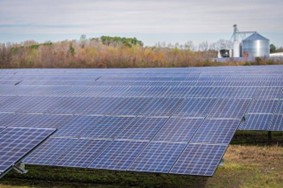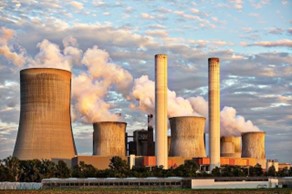In an era where green living is gaining momentum, the escalation of solar energy usage in residential spaces signifies a pivotal change in home energy dynamics. This upswing in solar adoption by homeowners isn’t just a nod to environmental awareness; it’s a clear sign of how home energy habits are evolving. Our focus here is to unravel how solar energy reshapes residential power consumption. This exploration will illuminate the practical benefits for homeowners, the financial advantages, and the eco-friendly impact of this renewable energy source. The move towards solar energy is more than a mere technological shift. It’s an essential stride towards a sustainable, energy-efficient future for our living spaces.
The Rise of Residential Solar Installations
Solar panel installation in homes is accelerating rapidly, representing a major transformation in the way we approach home energy. A growing number of households turn to solar energy systems, a change largely driven by rising concern for environmental issues and a shift towards sustainable living. Enhanced accessibility and affordability of solar panels, thanks to cost reductions and technological improvements, have broadened their appeal across various demographics. Homeowners also recognize the cost savings of solar energy over traditional power sources. It is not just about being environmentally conscious anymore. Solar energy is also seen as a wise economic choice, providing substantial savings on electricity bills in the long run.
Understanding Solar Power: Basics for Homeowners
At its core, the solar power system relies on solar panels, key components that capture sunlight. They contain photovoltaic cells that turn sunlight into direct current (DC) electricity. An inverter then transforms this DC electricity into alternating current (AC) electricity, which we use in homes. Also, many systems include battery storage, allowing storing of excess energy generated during sunny periods for use during times when the sun isn’t shining. This stored energy ensures a consistent power supply, enhancing the system’s efficiency and reliability. Basically, solar power harnesses natural sunlight, converting it into usable electricity, and provides a green, cost-effective solution for residential power needs.

Natural sunlight can be converted into electricity, and solar panels are the key components for that.
Solar Energy Is Reshaping Residential Power Consumption
By installing solar panels, you can produce electricity, directly harnessing the sun’s power. This reduces the environmental impact and lessens reliance on the traditional power grid, which is often generated from fossil fuels. Additionally, solar energy contributes to energy independence for homeowners. A personal solar power system allows greater control over the energy supply, providing a sense of security and autonomy.
Financial Incentives and Solar Adoption
Various government incentives, rebates, and tax credits reduce the upfront costs of solar panel installations, lowering the barrier to entry for many who might otherwise find the initial investment prohibitive. These incentives are not just about immediate savings; they also contribute to a favorable return on investment (ROI). While ROI can vary based on location and specific home characteristics, the US Department of Energy notes that the average ROI for solar installations falls between 10 and 20%. It means homeowners can typically expect to recover their initial outlay within 5 to 10 years through savings on their electricity bills. Besides, the long-term financial benefits of solar energy extend beyond just ROI. Homeowners with solar systems can enjoy reduced utility bills for the lifespan of their solar panels, often 20 to 25 years, leading to significant savings over time.
The Environmental Impact of Solar Energy at Home
As we noted, solar energy is reshaping residential power consumption, moving away from fossil fuel dependency. While conventional power generation often relies on burning fossil fuels, releasing carbon dioxide and other harmful pollutants into the atmosphere, solar energy offers a clean alternative. Solar panels produce electricity without emitting greenhouse gases, significantly lowering your carbon footprint. Likewise, solar energy reduces water usage and pollution. Traditional electricity generation often requires large amounts of water, whereas solar power systems need none, preserving vital water resources.

The environment is positively affected by this approach since it reduces air pollution from burning fossil fuels.
Challenges and Considerations in Going Solar
Switching to solar energy comes with its own set of challenges and considerations. Homeowners must consider various factors before they can reap its benefits. Here are some key points to regard:- Installation Costs: The initial expense of installing solar panels is often a significant concern for many. It varies depending on the system size and the property-specific needs.
- Site Requirements: Solar panels require specific conditions to operate efficiently. It includes adequate space and a location that receives sufficient sunlight.
- Roof Suitability: Not all roofs are suitable for solar panel installation. Factors such as the age, material, and roof angle affect its compatibility with solar panels.
- Local Climate: Local climate can influence the effectiveness of solar panels. Areas with higher sunlight exposure yield more energy.
Overcoming the challenges
Community projects and leasing programs can help overcome the (predominantly financial) challenges of utilizing solar energy in residential settings.- Community solar projects involve shared solar installations where multiple households benefit from a single solar array. These initiatives eliminate the need for individual installation, reducing upfront costs and making renewable energy more accessible to a more expansive demographic. Moreover, the communal nature of these projects fosters a sense of collective responsibility towards sustainable energy practices. Residential solar street lights, for instance, can be seamlessly integrated into these initiatives. They offer a sustainable lighting solution, harnessing solar energy to illuminate neighborhoods while significantly reducing energy costs and contributing to a greener planet. Practical solar lights for your home also provide decorative lighting solutions for the whole neighborhood while maximizing energy efficiency.
- Solar leasing programs offer another avenue for expanding solar access. Unlike purchasing solar panels outright, leasing allows homeowners to rent solar equipment from a provider, typically at lower upfront costs. Additionally, leasing companies often include maintenance services, alleviating the burden of upkeep for homeowners.
Future Trends in Residential Solar Power
Residential solar power is rapidly evolving, pushed by emerging technologies and innovative trends. One notable advancement is integrated solar roofing, with solar cells seamlessly incorporated into roof shingles. This technology enhances aesthetic appeal and increases the efficiency of solar energy capture. Also, future developments will deliver more efficient, compact, and long-lasting battery systems, enabling homeowners to store surplus solar energy more effectively. It will ensure a consistent power supply, even during periods with limited sunlight. These advancements revolutionize residential power consumption. Enhanced storage capabilities mean greater energy independence for homeowners, reducing reliance on the grid. The integration of solar technology into building materials will make solar power a more ubiquitous and accessible option, potentially becoming a standard feature in new home construction.
Solar energy is reshaping residential power consumption with people installing solar panels on their roofs
Final thoughts
In conclusion, the article highlighted how solar energy is reshaping residential power consumption. From the rise of solar installations to the emergence of alternative solar solutions and community projects, it’s clear that solar power plays an increasingly important role in sustainable living. Solar access is expanding through financial incentives, technological advancements, and community-driven initiatives, bringing long-term benefits to homeowners and the environment. As we move towards a greener future, the positive changes brought by solar energy underscore its importance in shaping the way we power our homes and communities.


